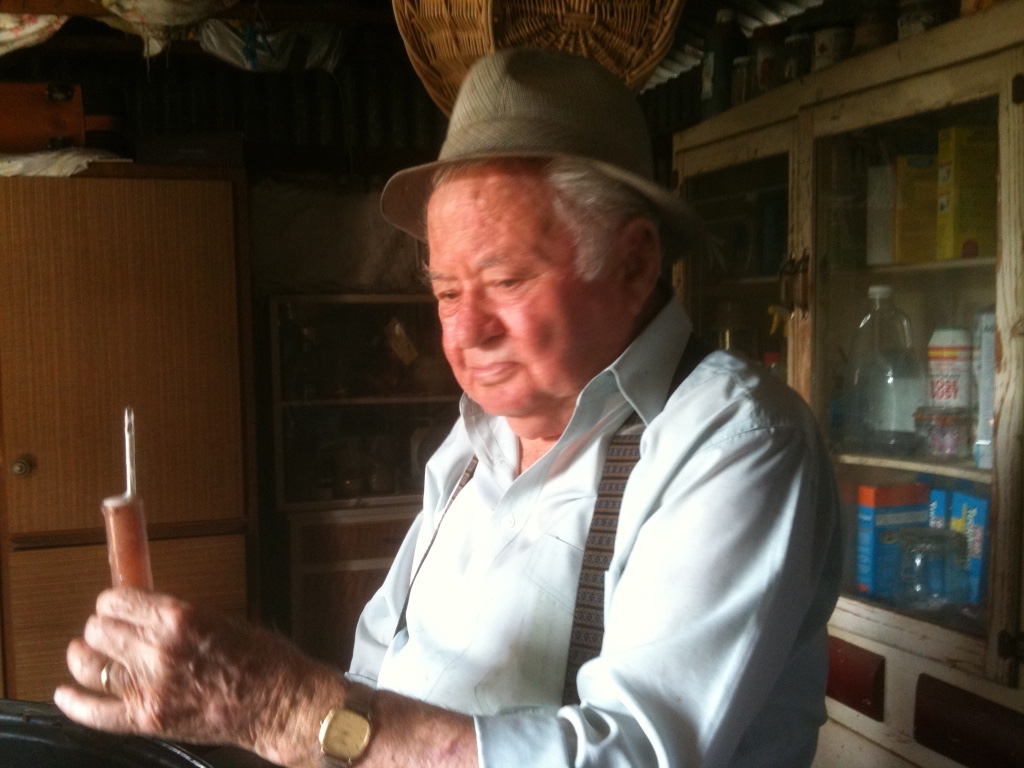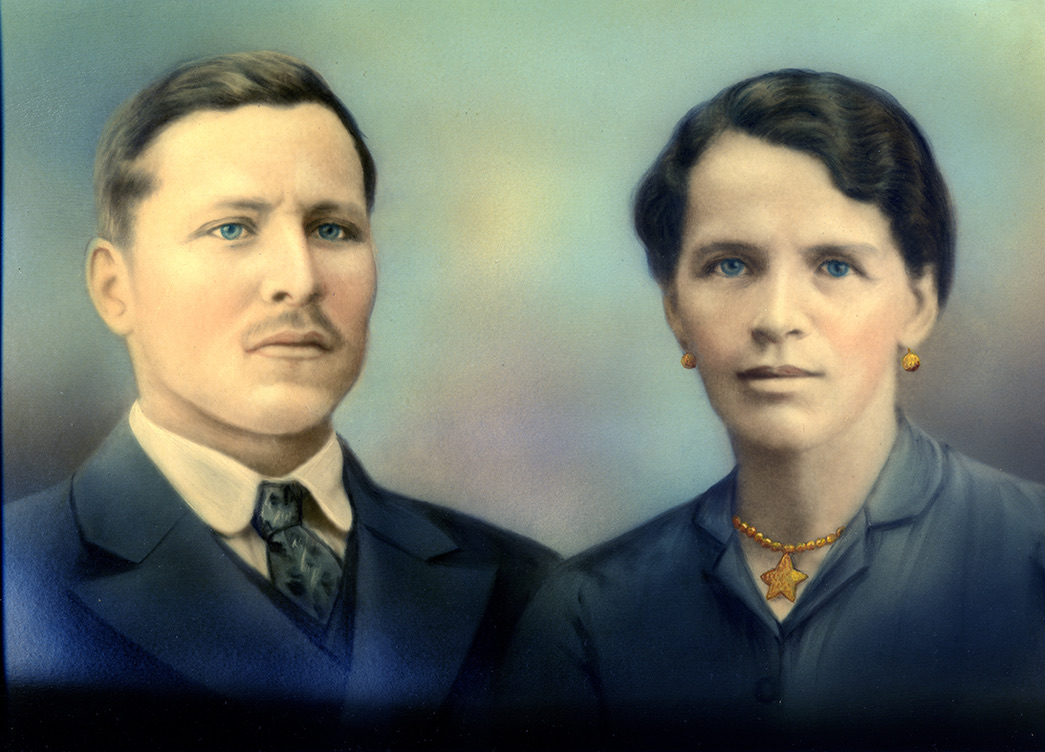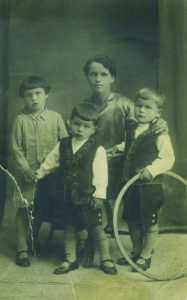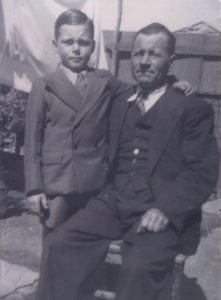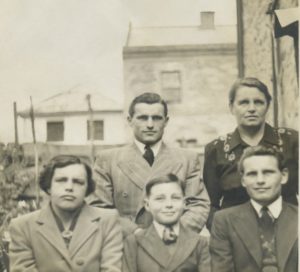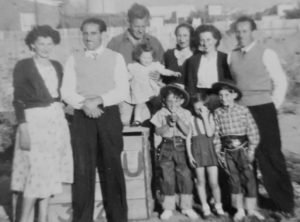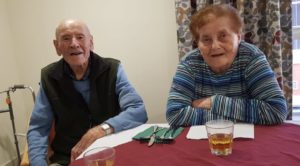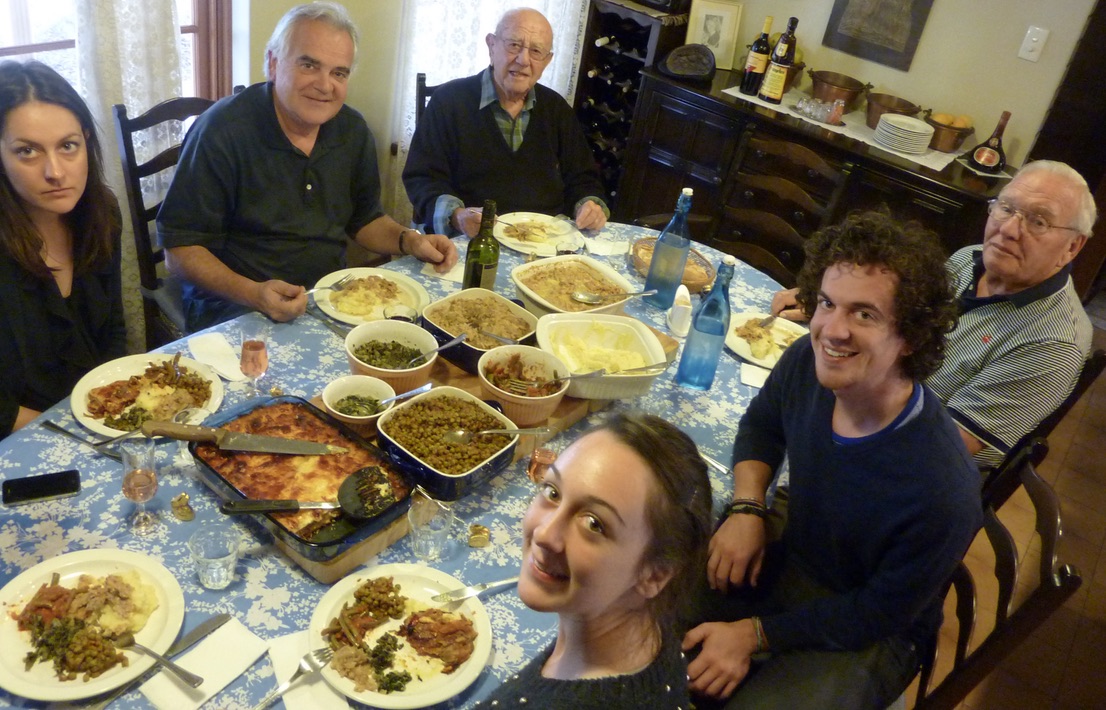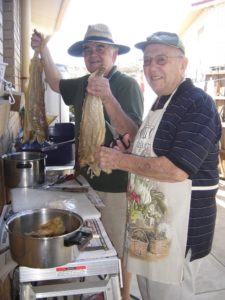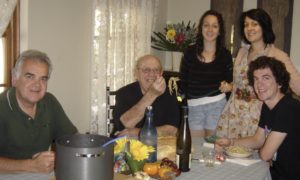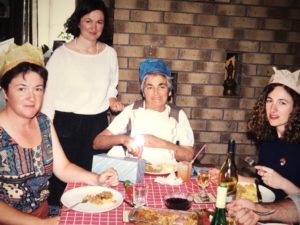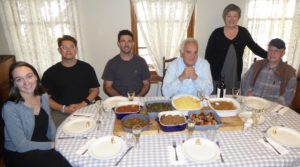This is a guest post from Aida Innocente whose parents were well-known to the Veneto market gardeners in Adelaide.
My father Angelo Innocente arrived in Australia in June 1950. He was born in Caselle (PV Treviso) in 1921. His maternal uncle, Pietro Compostella, sponsored him.
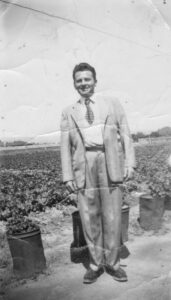
Dad left behind my mother Elsa and their three year-old daughter, Mirella, with his family. Mum and Mirella arrived in November 1952. I was born in 1955. Dad lived in White Avenue, Lockleys from the beginning, and he and Mum only left five months before his death in February 2012.
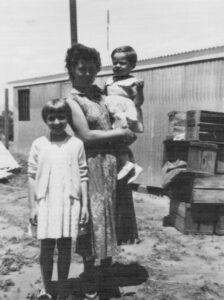
Dad initially worked at Peter Shearer’s on Port Road and then at Kelvinator’s. At night he worked for Harold Dare who owned a factory on White Avenue that made half-cases. Harold’s mother was Chinese and his father, Australian. His nephews lived next-door to my family in the early days.
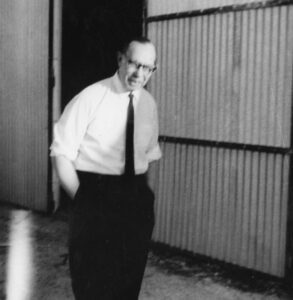
After leaving Kelvinator’s, Dad worked for Harold full-time. When Dad decided to go into business with Emilio Loro, a Veneto from Loria, Harold lent him money to set up business – in competition with him! My father always remained in contact with Harold even after he moved into a nursing home.
Dad and Emilio established AE (Angelo & Emilio) Case Company in the late ‘50s on Grange Road, Flinders Park on a property owned by the Berno family. The factory was an old shed. They made half-cases for packing tomatoes and crates for celery and made up to 1,000 half-cases a day. I loved going to the Grange Road property and I played in an abandoned house. In front of the house sprawled a glorious peppercorn tree. The smell of peppercorns always takes me back to this time.
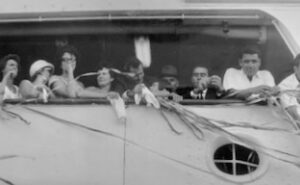
The boxes were mainly made of pine. The pine logs came from the South East and Mount Compass. Dad often collected the logs from Mount Compass. He and Mum would often do this after tea. One night, Mirella and I sat on the front porch waiting for their return. The freeway hadn’t been built and the roads in the Adelaide hills were narrow and winding. They returned after midnight. Dad had run out of petrol!
Sometimes after school I went with Dad to Bolivar, Virginia, St Kilda to deliver boxes. One afternoon we stopped to inspect the pig Dad had bought from a client at Waterloo Corner for the yearly salami making. Checking on the pig’s growth was part of the ritual. Dad immediately recognised his chosen pig in a pen full of pigs! He was very particular about how the pig (never a sow) was reared and fed.
In the early ‘70s Dad and Milio built a factory on Azalea Drive Lockleys, on the Torrens. When Milio decided to leave, Mum became Dad’s new partner. They worked together till they retired in 1981. Carton boxes had arrived and Dad did not want to start again.
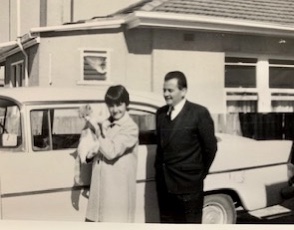
Mum and Dad’s good friend, Sila Bottin, worked with them for several years. The three often made deliveries after work. For dinner they would have a steak and onion sandwich from the food truck at the Cavan Hotel on Port Wakefield Road. The Cavan was referred to as the “Abattoz” (the Abattoirs was across the road). A beer always washed down the sandwich.
Over January and February in 1976, when I was 20, my parents visited family in Argentina, Brazil and Italy. Tomato season was over but the Mercuri on Findon Road had a celery crop to market. Sila and I made the celery crates and I got a learner’s licence to drive the truck to deliver them. My Santolo, Vittorio Marchioro sat next to me as the licensed driver!
My Dad had clients from all over Italy and other parts of Europe. As a child I remember these clients – Calabrians, Neapolitans, Bulgarians, Slavs, Greeks – dropping in to our home before Christmas to settle their accounts. Dad always made sure he had plenty of beer on hand. His clients brought fresh produce as gifts. I now look upon these Christmas visits as a great symbol of the meaning of Christmas – peace and harmony to all men of all lands and faiths.
Aida Innocente
3 May 2020
A causa della situazione di Covid-19, non è stato possibile tradurre il blog in italiano
